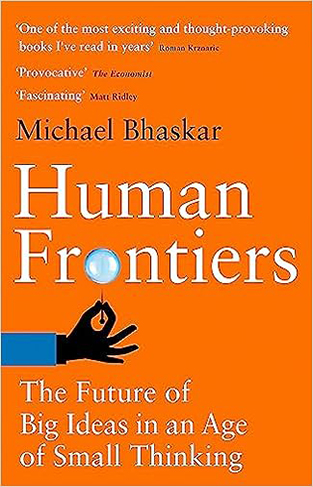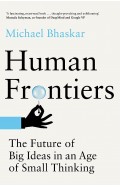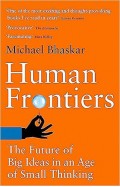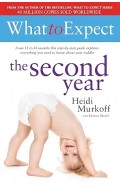- Home
- Business & Management
- Business & Finance
- Human Frontiers - The Future of Big Ideas in an Age of Small Thinking
Human Frontiers - The Future of Big Ideas in an Age of Small Thinking
By: Michael Bhaskar
-
Rs 2,335.50
- Rs 2,595.00
- 10%
You save Rs 259.50.
Due to constant currency fluctuation, prices are subject to change with or without notice.
'A fascinating book . . . Bhaskar is a reassuringly positive and often witty guide'
Observer
'A fascinating, must-read book covering a vast array of topics from the arts to the sciences, technology to policy. This is a brilliant and thought-provoking response to one of the most critical questions of our age: how we will come up with the next generation of innovation and truly fresh ideas?'
Mustafa Suleyman, cofounder of DeepMind and Google VP
'Have "big ideas" and big social and economic changes disappeared from the scene? Michael Bhaskar's Human Frontiers is the best look at these all-important questions.'
Tyler Cowen, author of The Great Stagnation and The Complacent Class
'Michael Bhaskar explores the disturbing possibility that a complacent, cautious civilization has lost ambition and is slowly sinking into technological stagnation rather than accelerating into a magical future. He is calling for bold, adventurous innovators to go big again. A fascinating book'
Matt Ridley, author of How Innovation Works
Where next for humanity? Is our future one of endless improvement in all areas of life, from technology and travel to medicine, movies and music? Or are our best years behind us?
It's easy to assume that the story of modern society is one of consistent, radical progress, but this is no longer true: more academics are researching than ever before but their work leads to fewer breakthroughs; innovation is incremental, limited to the digital sphere; the much-vaunted cure for cancer remains elusive; space travel has stalled since the heady era of the moonshot; politics is stuck in a rut, and the creative industries seem trapped in an ongoing cycle of rehashing genres and classics.
The most ambitious ideas now struggle. Our great-great-great grandparents saw a series of transformative ideas revolutionise almost everything in just a few decades. Today, in contrast, short termism, risk aversion, and fractious decision making leaves the landscape timid and unimaginative.
In Human Frontiers, Michael Bhaskar draws a vividly entertaining and expansive portrait of humanity's relationship with big ideas. He argues that stasis at the frontier is the result of having already pushed so far, taken easy wins and started to hit limits. But new thinking is still possible. By adopting bold global approaches, deploying cutting edge technology like AI and embracing a culture of change, we can push through and expand afresh.
Perfect for anyone who has wondered why we haven't gone further, this book shows in fascinating detail how the 21st century could stall - or be the most revolutionary time in human history.
'A fascinating book . . . Bhaskar is a reassuringly positive and often witty guide'
Observer
'A fascinating, must-read book covering a vast array of topics from the arts to the sciences, technology to policy. This is a brilliant and thought-provoking response to one of the most critical questions of our age: how we will come up with the next generation of innovation and truly fresh ideas?'
Mustafa Suleyman, cofounder of DeepMind and Google VP
'Have "big ideas" and big social and economic changes disappeared from the scene? Michael Bhaskar's Human Frontiers is the best look at these all-important questions.'
Tyler Cowen, author of The Great Stagnation and The Complacent Class
'Michael Bhaskar explores the disturbing possibility that a complacent, cautious civilization has lost ambition and is slowly sinking into technological stagnation rather than accelerating into a magical future. He is calling for bold, adventurous innovators to go big again. A fascinating book'
Matt Ridley, author of How Innovation Works
Where next for humanity? Is our future one of endless improvement in all areas of life, from technology and travel to medicine, movies and music? Or are our best years behind us?
It's easy to assume that the story of modern society is one of consistent, radical progress, but this is no longer true: more academics are researching than ever before but their work leads to fewer breakthroughs; innovation is incremental, limited to the digital sphere; the much-vaunted cure for cancer remains elusive; space travel has stalled since the heady era of the moonshot; politics is stuck in a rut, and the creative industries seem trapped in an ongoing cycle of rehashing genres and classics.
The most ambitious ideas now struggle. Our great-great-great grandparents saw a series of transformative ideas revolutionise almost everything in just a few decades. Today, in contrast, short termism, risk aversion, and fractious decision making leaves the landscape timid and unimaginative.
In Human Frontiers, Michael Bhaskar draws a vividly entertaining and expansive portrait of humanity's relationship with big ideas. He argues that stasis at the frontier is the result of having already pushed so far, taken easy wins and started to hit limits. But new thinking is still possible. By adopting bold global approaches, deploying cutting edge technology like AI and embracing a culture of change, we can push through and expand afresh.
Perfect for anyone who has wondered why we haven't gone further, this book shows in fascinating detail how the 21st century could stall - or be the most revolutionary time in human history.
Human Frontiers: The Future of Big Ideas in an Age of Small Thinking
By: Michael Bhaskar
Rs 2,035.75 Rs 2,395.00 Ex Tax :Rs 2,035.75
Human Frontiers - The Future of Big Ideas in an Age of Small Thinking
By: Michael Bhaskar
Rs 2,335.50 Rs 2,595.00 Ex Tax :Rs 2,335.50
Zubin Mehta: A Musical Journey (An Authorized Biography)
By: VOID - Bakhtiar K. Dadabhoy
Rs 892.50 Rs 1,050.00 Ex Tax :Rs 892.50
Viva Dictionary Of Punctuation And Hyphenation
By: William Gould
Rs 127.50 Rs 150.00 Ex Tax :Rs 127.50
And Another Thing... (The Hitchhiker's Guide to the Galaxy)
By: Eoin Colfer
Rs 355.50 Rs 395.00 Ex Tax :Rs 355.50
Collins Pocket Italian Dictionary
By: Collins Dictionaries
Rs 1,847.50 Rs 3,695.00 Ex Tax :Rs 1,847.50
No similar books from this author available at the moment.
Find Me: TikTok Made Me Buy It! The most addictive YA fantasy series of the year
By: Tahereh Mafi
Rs 1,795.50 Rs 1,995.00 Ex Tax :Rs 1,795.50
Lore Olympus: Volume Four: UK Edition: Rachel Smythe (Lore Olympus, 4)
By: Rachel Smythe
Rs 3,650.75 Rs 4,295.00 Ex Tax :Rs 3,650.75
The History of Al Khilafahar Rashidah
By: Dr Abdullah Al Ahsan
Rs 414.00 Rs 460.00 Ex Tax :Rs 414.00
Zubin Mehta: A Musical Journey (An Authorized Biography)
By: VOID - Bakhtiar K. Dadabhoy
Rs 892.50 Rs 1,050.00 Ex Tax :Rs 892.50
Human Frontiers: The Future of Big Ideas in an Age of Small Thinking
By: Michael Bhaskar
Rs 2,035.75 Rs 2,395.00 Ex Tax :Rs 2,035.75
Human Frontiers - The Future of Big Ideas in an Age of Small Thinking
By: Michael Bhaskar
Rs 2,335.50 Rs 2,595.00 Ex Tax :Rs 2,335.50
















-120x187.jpg?q6)
















